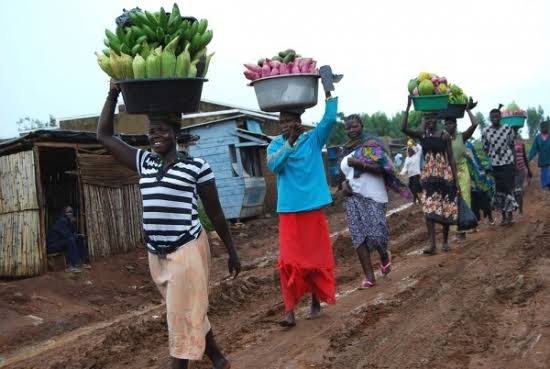Agriculture
On The Need To Support The Small Scale Farmers -By Abachi Ungbo
It has been motion without movement despite many attempts to ostensibly prop up this category of farmers. Barring any attempt at reimagining our approaches to the agricultural sector, the burden of our food needs will continue to rest on the thin shoulders of the small scale farmers in the face of the bulging population and the attendant spike in nutritional requirement.

It is pivotal to double our commitment towards improving the state of affairs of a ‘constituency’ in the agricultural sector that has remained somewhat undervalued in light of the scant appreciation that they receive in keeping the wheels of our food chain in motion. It’s the behind the scene activities of a plethora of small scale farmers that have made the sight of pick-up vans, lorries and articulated vehicles laden with agricultural produces and livestock plying on our bumpy roads and for the most part braving night time travels making deliveries to predetermined destination a common feature.
A motley of small scale farmers that are strewn around different corners of our country are responsible almost entirely for feeding and sustaining the food supply chain; therefore contributing to the nutritional, social and economic needs of the country. They are preponderantly from the rural backwater notoriously known for being bare of basic necessities and amenities. And, where such exist they are almost in a state of irretrievable state of dysfunction.
Daily they hunch over their hoes tilling the land in wet and dry seasons. They operate on scattered small lands which are either bought, family owned, inherited or rented. Quintessentially, they are subsistent in nature and capacity determines the quantity to be sold in the market in meeting numerous quotidian needs. The Family is the primary source of labour with support from hired labour in some instance and labour exchanges from other farmers. The use of rudimentary tools is the norm with improved farming practices, advisory services, market information etc practically absent. Basically, they count on their hands- on experience and efficiency in the utilization of available resources.
It has been motion without movement despite many attempts to ostensibly prop up this category of farmers. Barring any attempt at reimagining our approaches to the agricultural sector, the burden of our food needs will continue to rest on the thin shoulders of the small scale farmers in the face of the bulging population and the attendant spike in nutritional requirement.
Against this background, there is a strong necessity for proactive steps in adequately priming the small scale farmers by pulling out every stop in making their contribution count significantly while helping them take advantage of the emerging opportunities.
The small holder farmers are vulnerable to a myriad of stifling factors such as price volatility and the activities of middlemen that deny them the full benefits of their investment others include effect of climate change, limited access to inputs, credit market, lack of access to market, deficient or non-existing infrastructure etc. Social ills like conflicts, kidnappings and banditry are establishing crushing foothold in rural communities with debilitating effects. All of these factors and several others have conspired in pushing the small scale farmers deeper into the abyss of poverty.
Myriad of experiences have proven that access to market and information possesses the capacity to help circumvent not a few challenges and empowering the small scale farmers financially and therefore promoting pro-poor economic growth.
There’s necessity to enhance small scale farmers productivity through massive technology and financial support. Ndidi Nwuneli, the Managing Partner, Sahel consulting stated clearly that it is impossible for Nigeria to achieve food security or GDP growth when more than 74% of her small-scale farmers are financially excluded. The financial inclusion is the x-factor needed to transition Nigeria farmers from subsistence to a growth phase. This will be actualized by providing farmers with funding so they can invest in needed technology that will expand operation and enable them compete with agro-entrepreneur across the world.
Regardless of the weakness ascribed to the NIRSAL- Anchor Borrowers’ Programme resulting into mixed results. The motivation behind its creation remains brilliant and it is highly desirable to re-work the programme in light of the many lessons learnt for proper positioning in supporting the small scale farmers. More so, genuine advocacy in pushing the interests of the small scale farmers to the front burner of public discourse and holding policy makers and government accountable needs to be supported alongside, encouraging private initiatives.
On the whole, our surest path is to continue to put in place policies to support agricultural development, strengthen institutional capacities, provide appropriate infrastructure, facilitate technology access and create business friendly environment for the small scale farmers.
We need to place the small scale farmers on the path of recognition for their incredible contribution and valorising them means reaching out to them just as we do when we require their electoral mandates. And, improving agricultural productivity will require lot of doings in scaling up the small-scale farmer which should start now.
ABACHI UNGBO
abachi007@yahoo.com



















